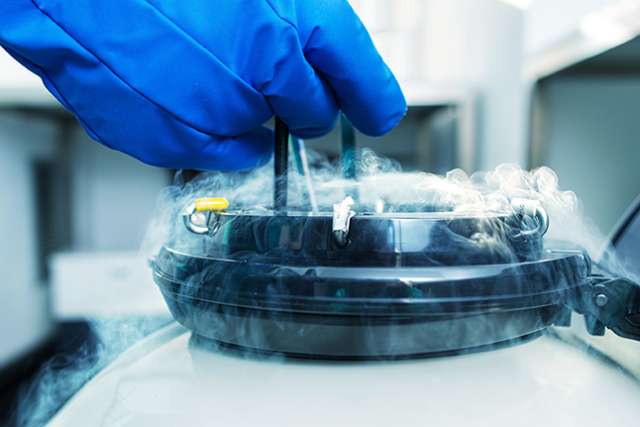Adolescents or young adults who receive a cancer diagnosis are focused on how to begin treatment quickly. For many of these individuals, childbearing is far enough in the future that they don’t think about whether cancer treatment could affect becoming a parent.
Cancer treatment may cause infertility
Discussing fertility preservation with a physician is an important conversation after a cancer diagnosis. Cancer survivors may feel a tremendous loss if they cannot have children because of their treatment. New therapies have improved the survival rates for young women diagnosed with cancer. But these treatments can potentially damage the reproductive system and impact a woman’s ability to get pregnant.
Fortunately, new fertility preservation techniques can help young women have children after cancer treatment. Prior to treatments, doctors can give medications that stimulate the ovaries and then retrieve eggs for freezing and use years later.
Cryogenic freezing protects eggs for future use
Until recently, it wasn’t possible to freeze individual eggs, even though scientists were able to freeze sperm and embryos (eggs fertilized by sperm). Eggs are only one cell, making them more susceptible to harm from freezing. But new technology makes it possible to freeze eggs without damage.
This medical advancement means younger women can now have their eggs collected before undergoing cancer treatment. The eggs are preserved in a deep freeze until they’re needed. This technique is most successful if women have already gone through puberty.
Preserving fertility starts before cancer treatment
While it may be difficult for patients and their families to think about reproduction when faced with a cancer diagnosis, fertility preservation may not delay treatment – doctors can often harvest eggs within 10 days.
Insurance providers may not cover egg freezing. However, UCLA can help connect patients with resources such as the nonprofit organization Fertile Action, which helps individuals find ways to pay for cryogenic freezing.
To learn more about egg freezing and fertility preservation in young adults, contact the UCLA Daltrey/Townshend Teen and Young Adult Cancer Program. This program serves oncology patients between the ages of 13 and 25.



